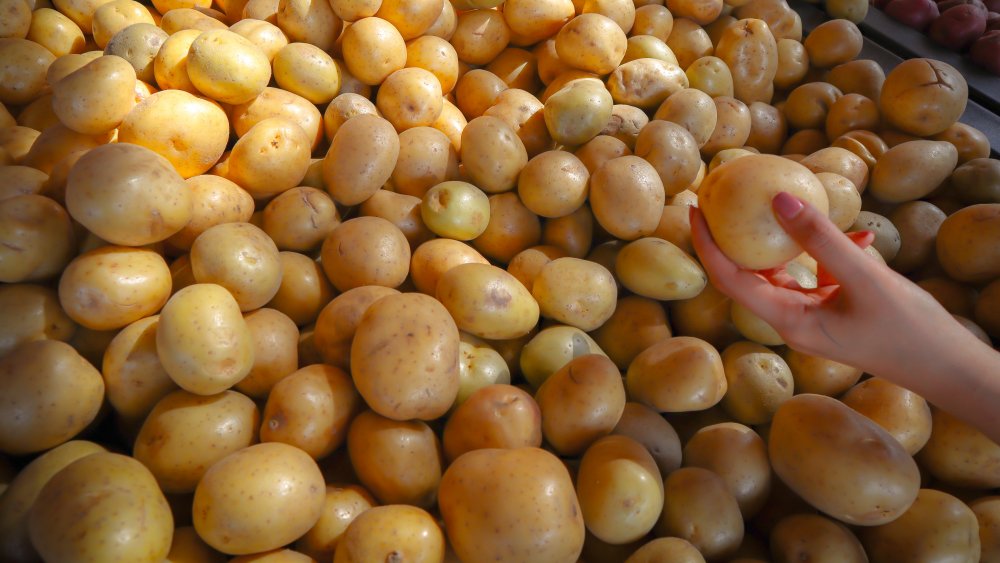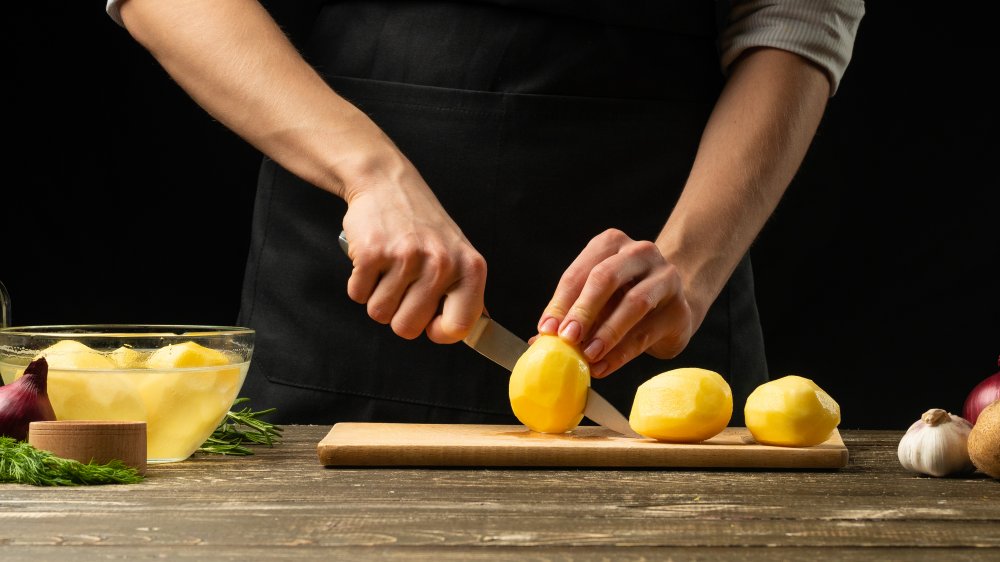You Should Never Store Potatoes In The Freezer. Here's Why
If you're happy potatoes are part of your weekly diet, you probably have Franklin D. Roosevelt to thank. He ran a national propaganda campaign during World War II to convince the American public to eat them (via Modern Farmer). Eat them, we did. Eat them, we do. In 2019, each American consumed, on average, around 34 pounds of fresh potatoes (via Statista). The problem with buying fresh potatoes, of course, is that you can never buy just one. Ever ended up throwing out a bag of unused potatoes? Yup, then you know the pain of storing potatoes is real.
You may be tempted to freeze them. Don't. When you freeze a potato — especially a whole, fresh, uncooked potato — the water in the potato will separate from the potato's starch (via Penn State Extension). The result? Mushy or even black spuds that are inedible (via Taste Essence and HuffPost).
If you have to freeze potatoes, this is how
The best way to store potatoes is in a cool, dark place, and in a ventilated container. But if you must freeze them, there are three cardinal rules to follow.
First, make sure you're choosing the right kind of potato to freeze. Good Cheap Eats recommends you stick to Yukon gold and red potatoes. If you plan on freezing them whole, Penn State advises that you find small, fresh potatoes and blanch them before freezing to prevent their insides from turning dark.
Second, consider preparing your potatoes before transferring them to your freezer. The easiest way to do so might be to mash them. Good Cheap Eats suggests that combining potatoes with the fatty, dairy-based products that are typically called for in your mash ensures that you'll preserve the potato's texture even after freezing. If you have mature potatoes, consider making French fries. According to Taste Essence, if you like a breakfast potato, hash browns also work well for freezing.
Third, make sure you're packing your food in a freezer-appropriate container. Whatever you do, stay away from flimsy plastic wraps and sandwich bags. Instead, opt for containers specifically designed to lock in the moisture of your food.

